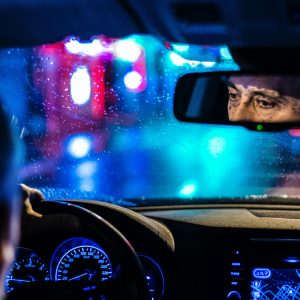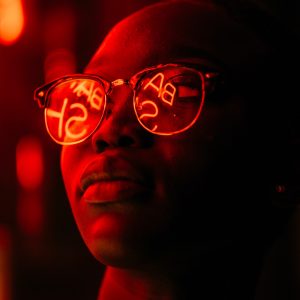Having Night Vision Problems? Here’s A Few Tips.

One of the biggest concerns we hear from patients is problems with night vision. This can be very serious, especially if the issue is worse when driving. Driving at night time can make night vision problems more pronounced and result in a dangerous situation.
Trouble Driving at Night

There are a few considerations when having problems driving at night. First is an uncorrected prescription. If you need glasses, this can cause your distance vision to be blurred, and is worse with low lighting. Second, everyone does poorly seeing in dark conditions and glare from headlights can make it very difficult to see road signs and lines on the road.
Aging and Night Vision Problems

As we grow older, structures in the eye start to change. One of those structures is called the lens, it gets thicker and allows less light into the eye. Changes in the light detecting part of the eye (the retina) causes us to have decreased rods (photoreceptors that help with night vision) and worsening night vision.
Halos, Glare, or Blurry Vision When Driving At Night

With changes in technology headlights are getting better as time goes on. However, better headlights for drivers are often brighter for those on the receiving side. These newer, brighter headlights can cause a lot of glare issues. This glare can be worse if you have astigmatism, which causes distance and peripheral blur.
What Can Help Night Vision Problems?

Those with mild to moderate issues with night driving can benefit from making sure their windshield is clean and headlights are at full strength. First and foremost, getting updated prescription glasses or contact lenses can help with distance blur and reduce strain when in low lighting conditions. We also recommend anti-glare coatings for glasses, as they can help reduce glare from headlights.
If the problem has rapidly changed or is severe, there are some genetic conditions that can result in a loss of night vision called nyctalopia.
If you or a loved one is experiencing a severe loss of night vision it is always recommended to get a comprehensive eye examination yearly and make sure no other problems are present.
